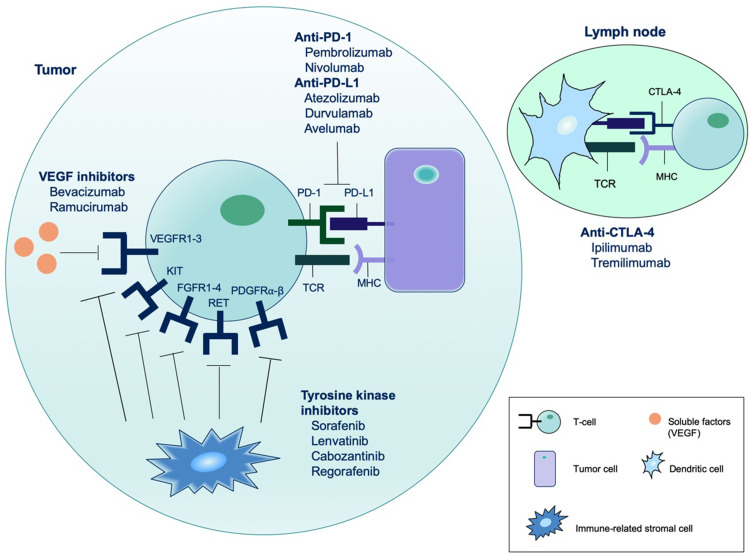Figure 1.
Main targets of systemic treatment for advanced HCC. VEGF inhibitors (bevacizumab and ramucirumab) prevent binding of circulating VEGF to the VEGF receptor, thereby inhibiting angiogenesis of tumor blood vessels. Tyrosine kinase inhibitors (TKIs) (sorafenib, lenvatinib, cabozantinib, regorafenib) block the intracellular kinase domain of the transmembrane receptor, preventing activation of downstream signal transduction cascades that lead to cell proliferation. Each multikinase inhibitor may act upon a diverse set of receptors, thereby suppressing activity of factors important in angiogenesis and tumor growth. VEGF receptors (VEGFR)-1–3, fibroblast growth factor receptors (FGFR)-1–4, platelet-derived growth factor receptor (PDGFR)-α-β, KIT, and RET are examples of some high-affinity targets of TKIs, but this is not a complete list. Immune checkpoint inhibitors (anti-PD-1, anti-PD-L1, and anti-CTLA-4 antibodies) act by blocking checkpoint proteins from binding with partner proteins, preventing the silencing of immune cells, thereby restoring the ability of the immune system to detect and kill cancer cells. These treatment modalities have been combined to potentiate a synergistic effect in tumor cell death.

